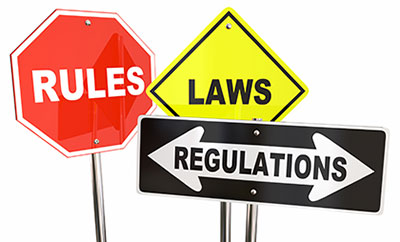For those following along in the One Year Bible, you know we’ve been trudging through the book of Exodus and the last few chapters of the Gospel of Matthew. I use the word “trudging” when talking about our passages from Exodus because the text seems static and stale, often times on the surface boring and mundane.
However, it’s important to remember that these words were delivered to a people who are journeying to what they envision as the “promised land.” They have recently left behind the bonds and stability of being an oppressed people in Pharaoh’s Egypt. You will notice I used the word “stability” as one description for their life of oppression in Egypt.
Although they were oppressed and in bondage, there was a sense of stability in their bondage. Bondage rarely requires much imagination and rarely is deemed as “risky.” But freedom? Ah, freedom brings with it challenges. Freedom brings with it inconvenience and risk. Freedom requires imagination. Although humans are meant for freedom and flourishing (“Life eternal and abundant,” Jesus calls it), human nature is easily adaptable to bondage and oppression. Even a prisoner has shelter, a mattress and three meals a day. It is easy to grow comfortable in our bondage.
But, in order for the children of Israel to exist in their new found freedom, the writer of Exodus tells them there are “ways” to order their freedom together; there are boundaries to be observed in order that all may flourish.
Exodus 21:22-23:13 offers a litany of such “ways” and “boundaries” to order their lives. Some will read it and see it as “rules.” (very few of us like the word “rules.”) But, rules are necessary. (there I said it)
For example, there are rules of the highway. If you drive, you drive on the right side of the road; you stop at red lights and stop signs and you put on your signals to make a turn. We follow the rules so that everyone can enjoy the freedom of transportation and mobility.
At times, the “rules” or “ordering of life” in Exodus seems harsh and unnecessary. For example: Exodus 22:16-19 says, “If a man seduces a virgin who is not engaged to anyone and sleeps with her, he must pay the customary dowry and accept her as his wife. But if her father refuses to let her marry, the man must still pay the money for her dowry. A sorceress must not be allowed to live. Anyone how has sexual relations with an animal must be executed.”
Those actions seem archaic and foreign to us and so we read over them quickly and with a slight wince we brush them aside.
But then we bump into words like, “Do not oppress foreigners in any way. Remember you yourselves were once foreigners in the land of Egypt. Do not exploit widows or orphans. If you do and they cry out to me, then I will surely help them. My anger will blaze forth against you, and I will kill you with sword.”
We read those words and empathize with parts of it but we also scream, “that’s some violent stuff there.” At times, we might even say, “God is pretty hateful and ruthless.”
My friends, remember scripture is going somewhere.
Remember, scripture is the written manifestation of human beings’ interaction with the Divine.
Remember, these people just left a land where many of these actions that insult our senses were common place.
For its time and place, these words and this way of ordering one’s life was revolutionary.
These were the boundaries necessary for freedom to flourish outside the bonds and oppression of Egypt.
If you’ve stayed with me this far, you’re ready for the big question. So, what are we, living in 2020, to do with such admonitions in scripture? First of all, don’t read the texts in isolation. Don’t proof text (proof texting is the act of lifting out one verse or part of a verse to affirm or confirm our beliefs and ideology.) Read the entire text and while reading, ask the Holy Spirit to open your hearts and ears to what God may be saying in the here and now.
Let me show you a few more nuances of these texts before I offer the meta narrative I find in these texts.
The people now relishing in their new found freedom on the deliverance side of the Red Sea hear these words: “Don’t pass along false reports. Do not cooperate with evil people by telling lies on the witness stand. Do not join a crowd that intends to do evil. If you come upon your enemy’s ox or donkey that has strayed away, take it back to its owner, your enemy. If you see the donkey of someone who hates you struggling beneath a heavy load, do not walk by. Instead, stop and offer to help. Do not twist justice against people simply because they are poor. Keep far away from falsely charging anyone with evil. Never put an innocent or honest person to death. Take no bribes, for a bribe makes you ignore something that you clearly see. A bribe always hurts the cause of the person who is in the right.”
Do you see a theme emerging?
Let me share just a few more verses.
“Do not blaspheme God..Do not hold back when you give the LORD the tithe of your crops and your wine. Work for six days and reset on the seventh. This will give your ox and your donkey a chance to rest. It will also allow the people of your household to be refreshed. And remember never pray to or swear by any other gods. Do not even mention their names.”
(Let’s take a jump to the New Testament) At one point in the Gospel of Matthew, a learned man asks Jesus a question. The man is hoping to trick Jesus (as is the usual case in those situations). The learned man, being a devout Jew brings up the “law.” (the rules, the boundaries, the way of ordering one’s life.) He asks…
Matthew 22:36 “Teacher, which is the greatest commandment in the Law?” 37 Jesus replied: “‘Love the Lord your God with all your heart and with all your soul and with all your mind.’ 38 This is the first and greatest commandment. 39 And the second is like it: ‘Love your neighbor as yourself.’40 All the Law and the Prophets hang on these two commandments.”
Now do you recognize a theme? Do you see the overarching narrative in the Exodus scriptures?
Yep, if we order our lives by this narrative “Love the LORD your God with all your heart and with all your soul and with your mind. And love your neighbor as you love yourself” the freedom we seek, the flourishing we long for, and the abundant life we so desperately crave will be ours.
Rules are necessary. Boundaries are needful. It’s how we flourish as human beings. It’s how we live as the creator intended and crafted us to live.

